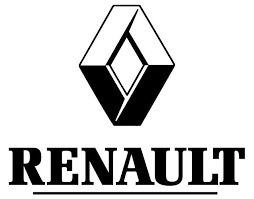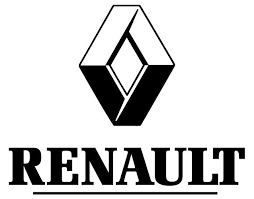
The Zoe small electric car form Renault had gained popularity among buyers because of an increased range for a single charge. With a range of 400 km (249-mile) on a single charge, the new revamped model is way ahead in this aspect compared to the previous model which offered only 300 km when fully charged and therefore had attracted less customers.
According to analysts, this revamp has helped the car maker to reduce the range anxiety among customers with the new model
This year, the sales of the Zoe in the United Kingdom more than doubled, according to Renault, and added that sale of its diesel models was lower than its zero-emission cars France this year till the end of September. This was a significant milestone for the company.
Training on electric-vehicle technology had been provided to 30,000 dealer staff across Europe by it, the company said.
"At the beginning, we were facing some psychological barrier linked to autonomy: oh la la, am I going to have a breakdown, I won't have any more electricity," said Denis le Vot, Renault's head of sales of the company. "We learned these lessons very well."
But the road ahead for the company is still long and expansion of range and training of staff might not be enough. The final costs of electric vehicles is still higher than those of conventional vehicles – often 20 to 30 per cent higher, because of high battery costs and lack of manufacturing scale.
This makes dependence on government subsidies very critical to support demand of their cars for companies like Renault and other automakers. However such government support is patchy across Europe.
However, according to industry experts, it is expected that car battery costs would fall further in the coming days which will make the price of some EVs the same as or less than the conventional combustion engine models by the middle of the current decade.
"The first firms to achieve the ultimate goal - an affordable, unsubsidized electric vehicle - will gain a valuable competitive advantage," Bain & Company said in an Oct. 29 report.
Until that happens however, electric vehicle makers should focus on sustaining electric vehicle sales increase production capacities but should also be aware not to overstretch their finances as they would be selling such vehicles at lower profit margin.
Making use of government subsidies and offering discounts on EVs was the main approach of Renault, the company said, which would include setting up free charging stations for customers as well as training its staff members on EVs.
For example, up to 11,500 euros ($13,600) - more than a third - off the price of the Zoe can be saved by taking advantage of government subsidies, combined with a scrappage scheme and discounts from Renault by consumers in France.
At a time when all carmakers have to build up EV sales to meet strict EU emissions limits, Renault also faces intense competition in the segment in addition to the financial challenges and the addressing and adapting to the changing consumer behaviour that has been prevalent for decades.
(Source:www.businessworld.in)
According to analysts, this revamp has helped the car maker to reduce the range anxiety among customers with the new model
This year, the sales of the Zoe in the United Kingdom more than doubled, according to Renault, and added that sale of its diesel models was lower than its zero-emission cars France this year till the end of September. This was a significant milestone for the company.
Training on electric-vehicle technology had been provided to 30,000 dealer staff across Europe by it, the company said.
"At the beginning, we were facing some psychological barrier linked to autonomy: oh la la, am I going to have a breakdown, I won't have any more electricity," said Denis le Vot, Renault's head of sales of the company. "We learned these lessons very well."
But the road ahead for the company is still long and expansion of range and training of staff might not be enough. The final costs of electric vehicles is still higher than those of conventional vehicles – often 20 to 30 per cent higher, because of high battery costs and lack of manufacturing scale.
This makes dependence on government subsidies very critical to support demand of their cars for companies like Renault and other automakers. However such government support is patchy across Europe.
However, according to industry experts, it is expected that car battery costs would fall further in the coming days which will make the price of some EVs the same as or less than the conventional combustion engine models by the middle of the current decade.
"The first firms to achieve the ultimate goal - an affordable, unsubsidized electric vehicle - will gain a valuable competitive advantage," Bain & Company said in an Oct. 29 report.
Until that happens however, electric vehicle makers should focus on sustaining electric vehicle sales increase production capacities but should also be aware not to overstretch their finances as they would be selling such vehicles at lower profit margin.
Making use of government subsidies and offering discounts on EVs was the main approach of Renault, the company said, which would include setting up free charging stations for customers as well as training its staff members on EVs.
For example, up to 11,500 euros ($13,600) - more than a third - off the price of the Zoe can be saved by taking advantage of government subsidies, combined with a scrappage scheme and discounts from Renault by consumers in France.
At a time when all carmakers have to build up EV sales to meet strict EU emissions limits, Renault also faces intense competition in the segment in addition to the financial challenges and the addressing and adapting to the changing consumer behaviour that has been prevalent for decades.
(Source:www.businessworld.in)














